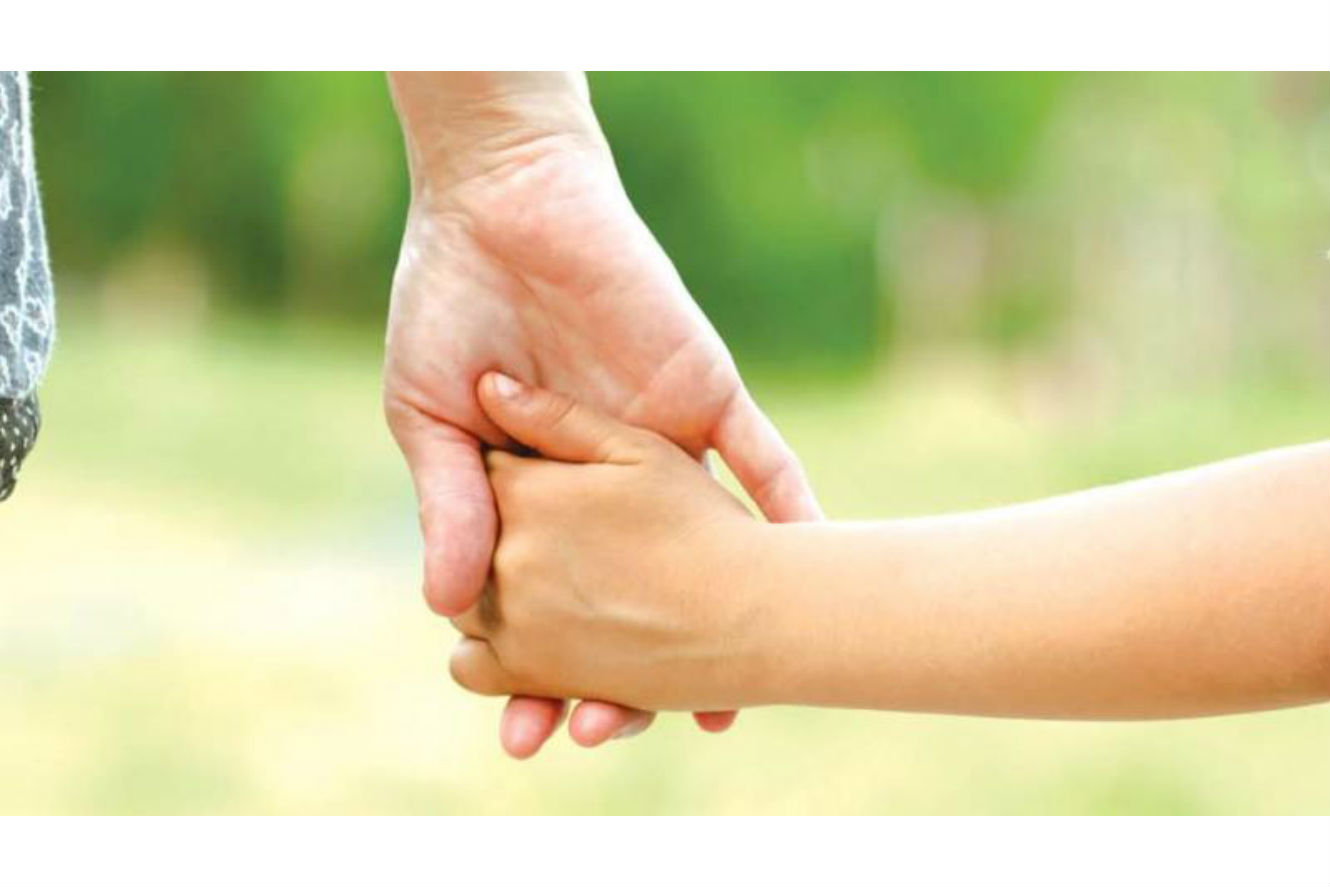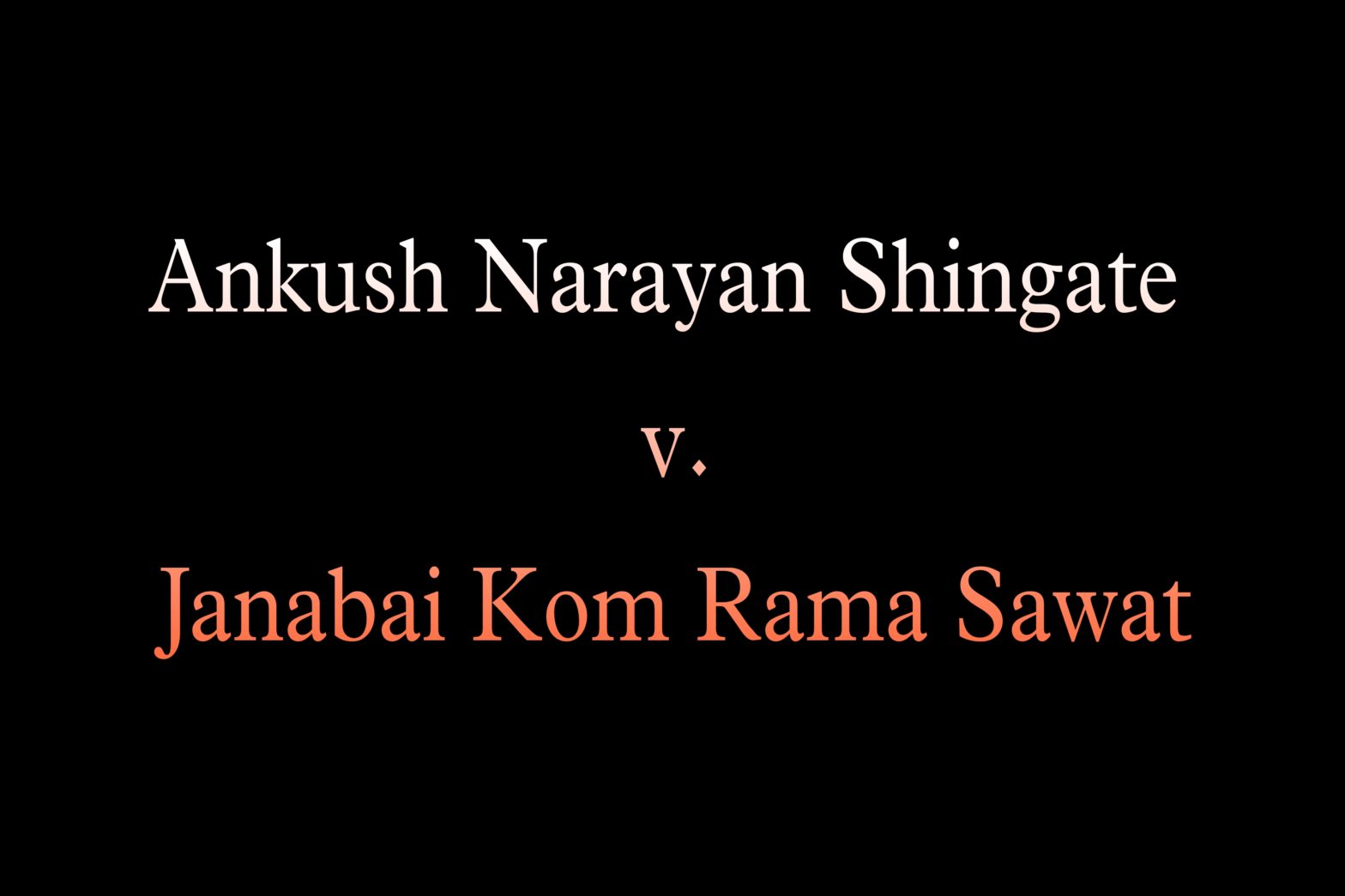Case Name: Ankush Narayan Shingate vs Janabai Kom Rama Sawat
Citation: AIR 1966 Bom 174, (1965) 67 BOMLR 864
Date of Judgement: 23-04-1965
Parties Involved: Ankush Narayan Shingate and Janabai Kom Rama Sawat
Facts

About 40 years before 1957 [the date of the suit], one Narayan died intestate of at village Mardhe, living him surviving as his only heirs and next of kin his two windows respectively senior Laxmibai, and Junior Tanubai and one Janabai, daughters to the senior widow Laxmibai. He left 23 properties at villages Mardhe, all of which are mentioned in the schedule of properties annexed to the plaint. The two widows appear to have mortgaged properties mentioned in serial Nos. 4 to 9 12 to 15 and 17. All these properties were in course, of time redeemed by defendants No.2 Janabai the daughters of senior widow Laxmbai.
The properties in Serial Nos. 20 and 21 were sold in 1937 to defendants No.3, property serial No. 18, was sold by defendants No. 2 to defendants 4 and 5 in 1950. Property, serial No. 23, was sold by the widow Laxmibai died intestate in 1948 The plaintiff case is that Tanubai was residing with the natural father of the plaintiff. Taking advantage of the absence of the plaintiff’s natural father defendants No.2 Janabai removed defendants No.1 Tanubai from the house of the plaintiff with a notice dated December 9, 1957. This notice was received by the plaintiff on about December 13, 1957 plaintiff gave a reply dated December 16, 1957, denying the contentions made by Tanubai in the notice dated December 9, 1957, a contended that the plaintiff had been duly adopted by Tanubai.
Thereafter the on December 31, 1957, the plaintiff filed the above special civil suit No.10 of 1957 for relied upon possession of all the prorates mentioned in serial No. 1 to 18 and 20 of 23, and menace profits amounting of the Rs. 1,000 per year from the dates of the suit till possession and for costs paragraphs 1, 2, and 3 of the plaints relate to the leadings of the mortgage of the sale of the respect of the leading properties of mention of the sale in respect of the property mentioned in the schedule annexed to the plaint.
Issues
If a Hindu adopts a child after the commencement of the Hindu Adoptions and Maintenance Act, 1956, whether that adopted child also becomes the adopted child of her deceased husband.
Holding
The Court held that on adoption by a widow, the adopted son becomes the son of the deceased adoptive father, and the position under the old Hindu law as regards ties in the adoptive family is not changed.
Rationale
According to the learned Judge, under the customary Hindu Law, when a widow adopted a son. She adopted the son of her deceased husband who became the adoptive father of the adopted child. When a child has been adopted, they shall be considered as the child of their adoptive parents for all purposes. The child shall have all the rights and obligations of a son/daughter.
Dicta
According to the provision of the act, when either of the spouses adopts a child, all the ties of the child in the family of his or her birth become completely severed, and these are all replaced by those created by the adoption in the adoptive family.
Comment
The above judgement shows that law provides a status to the adopted child as well as the adoptive family. Adoption is the creation of a new, permanent relationship between an adoptive parent and child. Once this happens, there is no legal difference between a child who is adopted and a child who is born into a family.
